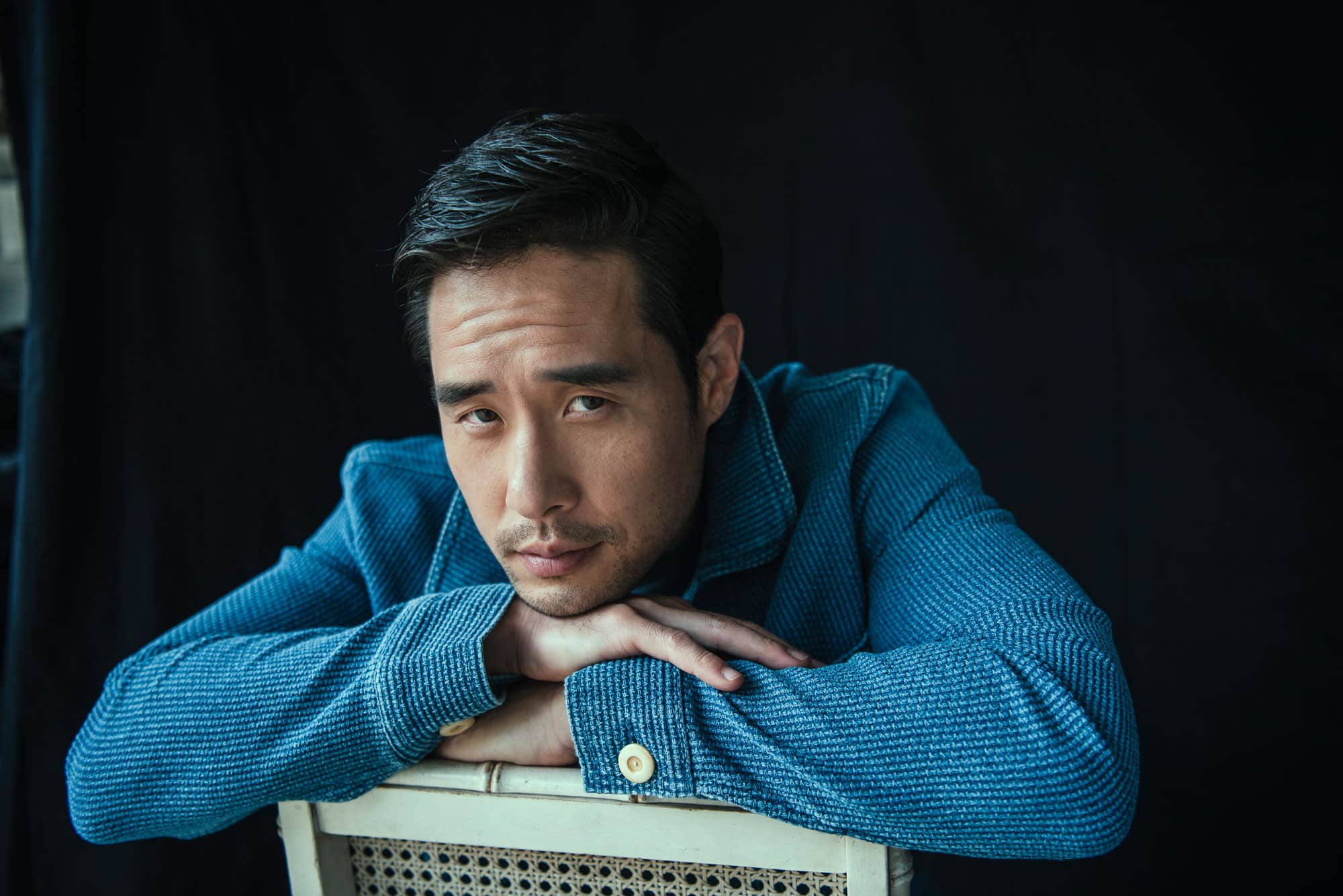In keeping with the time-traveling theme of the show, let’s jump straight to the end of my conversation with ‘Quantum Leap’ star Raymond Lee.
We’ve covered a lot of ground in 45 minutes, over Zoom, as he sits in his trailer ahead of another day filming NBC’s reimagining of the cult classic series. Raymond has told me about growing up without a father present in his life, and how that has influenced his own approach to fatherhood now he has a three-year-old daughter and a one-year-old son. I now know about his amazing Korean mother, Kyong Suk Choe, who guided his career as an actor so delicately that he didn’t even notice. And I have huge respect for his tenacity, having heard how he worked every job going, from serving coffee in Starbucks to finding acting gigs on Craigslist, in his rise from high school dropout to fronting one of the most talked-about TV reboots of recents years. I’ve also developed a new appreciation for Tom Cruise, having been told how he mentored Raymond and the other up-and-coming cast members on the set of ‘Top Gun: Maverick’.
So I wrap up our conversation with a question that has been bouncing around my mind for the last few days as I prepare for this interview, or perhaps even a few decades since being fascinated by the concept of the original ‘Quantum Leap’ series as a kid. In recent days, I’ve watched the slick and entertaining pilot of the new version of the show, which Raymond fronts with confidence in the lead role of time-traveling scientist Ben Song, before slipping down a 1990s’ rabbit hole of reruns of the original series, which starred Scott Bakula in the role of Sam Beckett, the first incarnation of the show’s central character who is transported through time to change the course of folks’ lives for the better. So I wonder, what has filming this show made Raymond think about these sliding doors moments we have in our lives, and whether we would change elements of our past if we could?
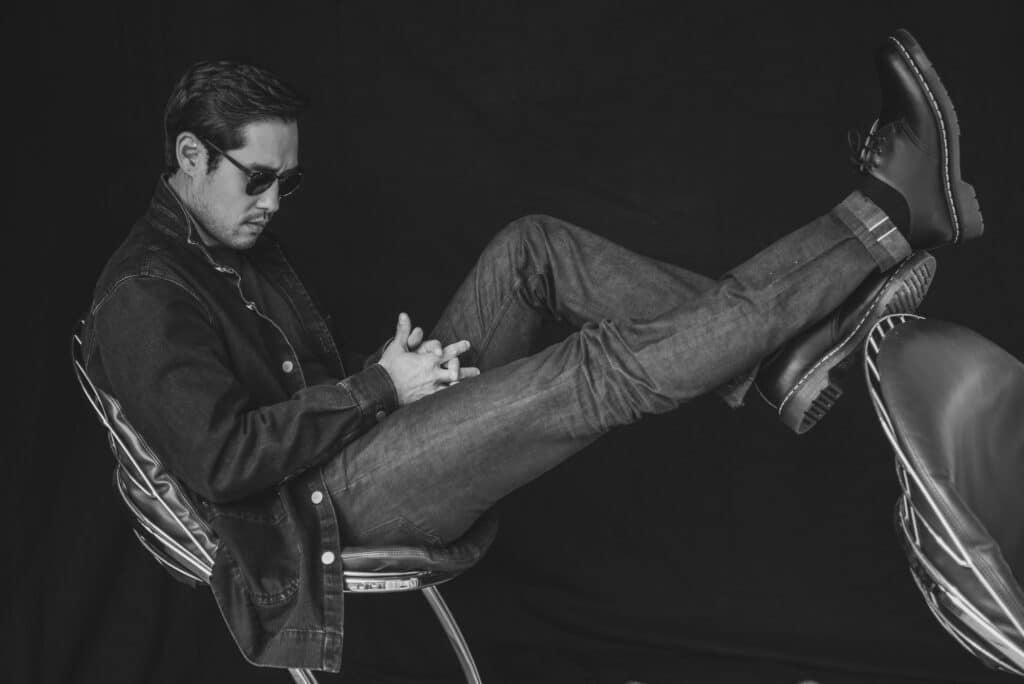
“There was one night where I took some edibles, and I was by myself, and I started thinking about the show, and what it all means, and my own journey to get here,” Raymond recalls, placing his hand gently on his forehead as if to reassure his brain it doesn’t have to go there again. “I’ve never had a panic attack before, but that was one. I started breathing really heavily, my throat was drying up. And so I got up and I said out loud, ‘Stop! Stop!’ And I just stopped thinking about it. I had to. It’s such a big question, and because I’m still in it, it’s hard to think about it objectively. I think when we wrap our season, I’ll really give it some good thought, maybe do a solo retreat.”
Raymond then rounds off his answer with a thought that really sums up the crux of our conversation, about how putting in the hard yards helped him fulfill his potential after not finding his purpose until his 20s, and then finally landing his first lead role on television, in one of the most eagerly-anticipated network shows of recent years, aged 35.
“As of right now, I’m just so grateful for the experience and for the fact that this role doesn’t feel foreign to me,” he says, looking around his trailer parked somewhere on the Universal Studios Hollywood lot. “I’m here, and I don’t feel like a complete imposter. I’m here, and I feel like I’ve worked to get here. The building blocks have been to put in place. Everything that surrounds this job, that isn’t the job, feels foundationally secure for me to do my best work. So I’m grateful that all those pieces have been built somewhat correctly.”
It’s fantastic that Raymond feels like this, as so often we don’t, and it can spoil what should be the proudest moments of our lives. So let’s now travel back in time, to the beginning of our conversation, and find out how he got to this healthy and robust place in his life.
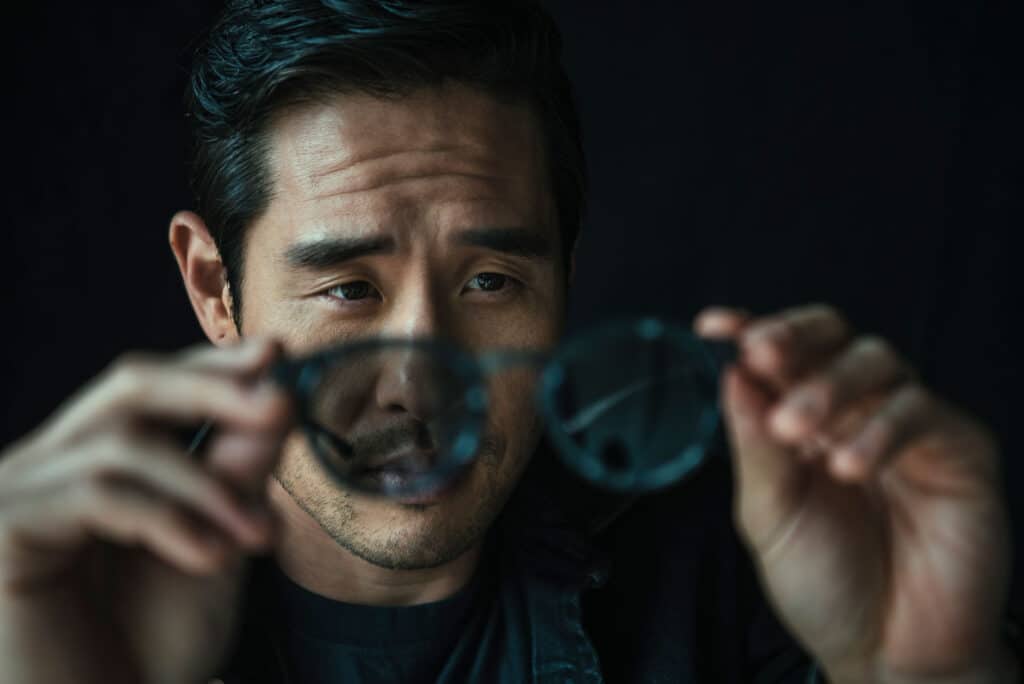
‘Quantum Leap’ was one of the first ‘grown-up’ shows I remember loving as a kid. Were you a fan of the show a youngster?
I was a little too young for it first time around, but I was introduced to the reruns when I was in about sixth grade. It was my best friend’s favorite show, who was a sci-fi nerd. And, like you, it was one of the first dramas I really got into, as before that I was only watching cartoons. I have fond memories of playing street hockey and then going over to his house to watch ‘Quantum Leap’. Since being cast in the role, I’ve gone back and revisited some episodes and it’s obviously different to me now as an adult. I’m now watching for reference more than anything, while being fully aware we’re creating our very own show and not trying to recreate the original. Many years have passed since, and everybody’s expecting something different from a television show now.
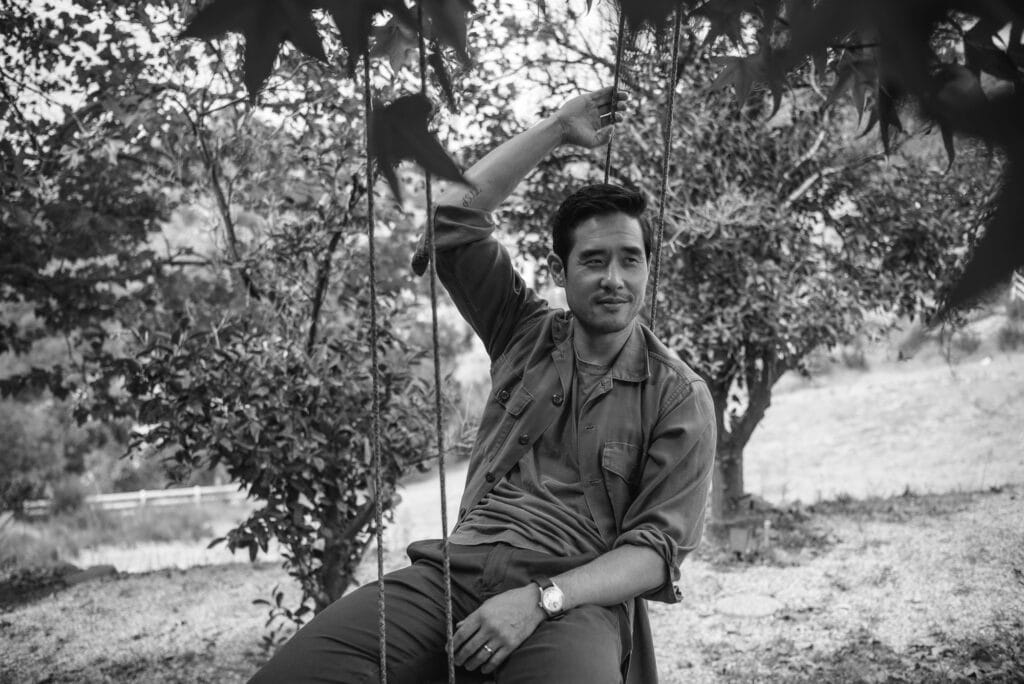
Tell me a little about how this role came about. You’re in your mid-30s now, and this is your biggest TV role by some distance, so it must be cool to feel like all your hard work is coming to fruition.
Yeah, I’ve always put out there that I wanted to be at the center of the narrative. Of course, contributing to the story is incredible, but I’ve always felt that I was capable enough to carry a story. And it wasn’t until around 2016 when I got to do a play — a true story called ‘Vietgone’ by Qui Nguyen who went on to write films for Disney — where I was the romantic lead, and it was the first time I really believed I could be the leading man. Because growing up you don’t see many people that look like me and these kinds of roles, especially in America. That play sparked something different in me, and from that point on I decided to only take on roles that made me feel like that. However, those roles are few and far between for people who look like me. But then I was offered this role, and I’m very grateful to all the folks responsible for that.
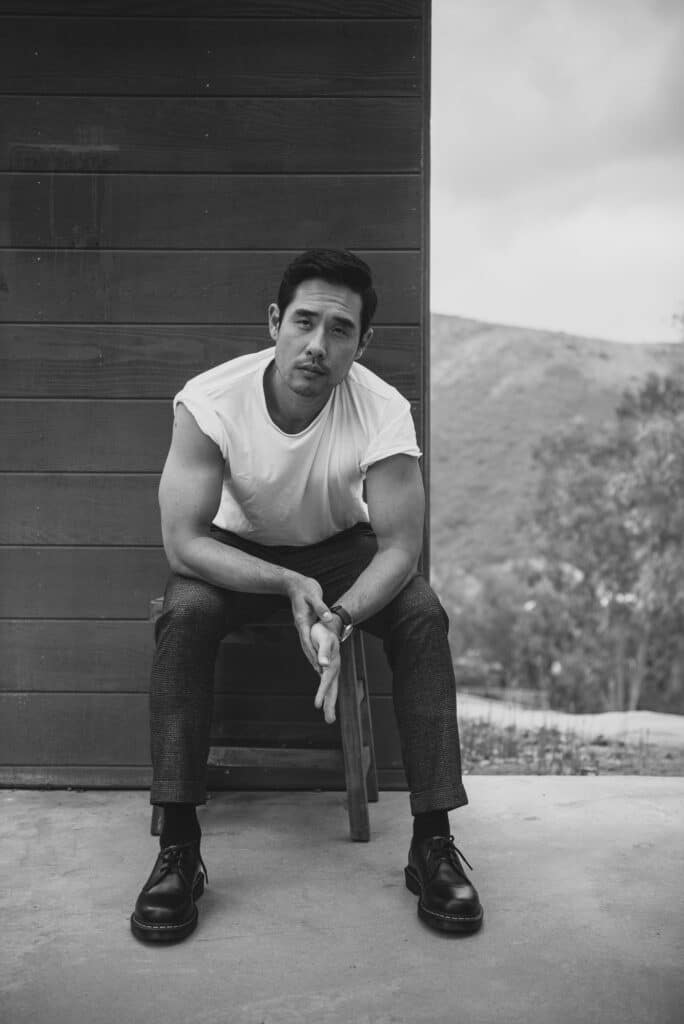
Last issue we spoke to Jacob Batalon, who played Peter Parker’s sidekick in ‘Spider-Man’ and is now the lead in his own show, ‘Reginald the Vampire’. His story hit some similar notes about now being at the center of the story, rather than always playing secondary roles, and how important it is for other Asian-Americans to see that. It’s a sign of progress I am speaking to you both in back-to-back issues, although obviously there’s a long way to go. In the future hopefully the fact you are Asian-American will not be such a central topic of our discussion, as it will have become more commonplace to see Asian-Americans in lead roles. But for now I think it’s important to highlight the significance of it.
I saw that article, and I think that’s great. Thank you for highlighting our voices and bringing our stories to the forefront. It shows a lot of progress, and I’m very happy to be a part of contributing to that progress. I hope it can become a thing where it’s not so rare. I didn’t grow up with many role models in the entertainment field, but I had a lot of role models that look like me in my life. I was lucky enough to grew up in Koreatown, Los Angeles, where it’s mostly Koreans, and I never thought of us being compared to any other. My uncle was the coolest guy. I thought my mom was really cool. I thought my friends were the coolest kids. And when I moved to Glendale, there was still a strong Asian population. Our high school quarterback was Asian dude, our Associate Student Body president was my best friend, who’s also Korean. I never thought of us as being ‘less than’ growing up, which was very important for my self-confidence. It wasn’t until I got into the industry where I was hit with the harsh reality that we were relegated to playing sidekicks and the butt of the jokes, and we’re still supposed to have accents even though we were born here. But if this is your passion, you have to find a way to make it work. So you’re doing supporting roles, and you end up having to get really good at them to survive, so it perpetuates the system which is not really helping anybody. So it’s important that the writers create leading roles for us so we can see ourselves like this. Media does so much, not just for folks who want to be in the media, but also for folks who want to run for office, be a CEO, a head coach, or a teacher, or whatever; if you can see people who look like yourself in those roles, it can help you believe you can do it too.
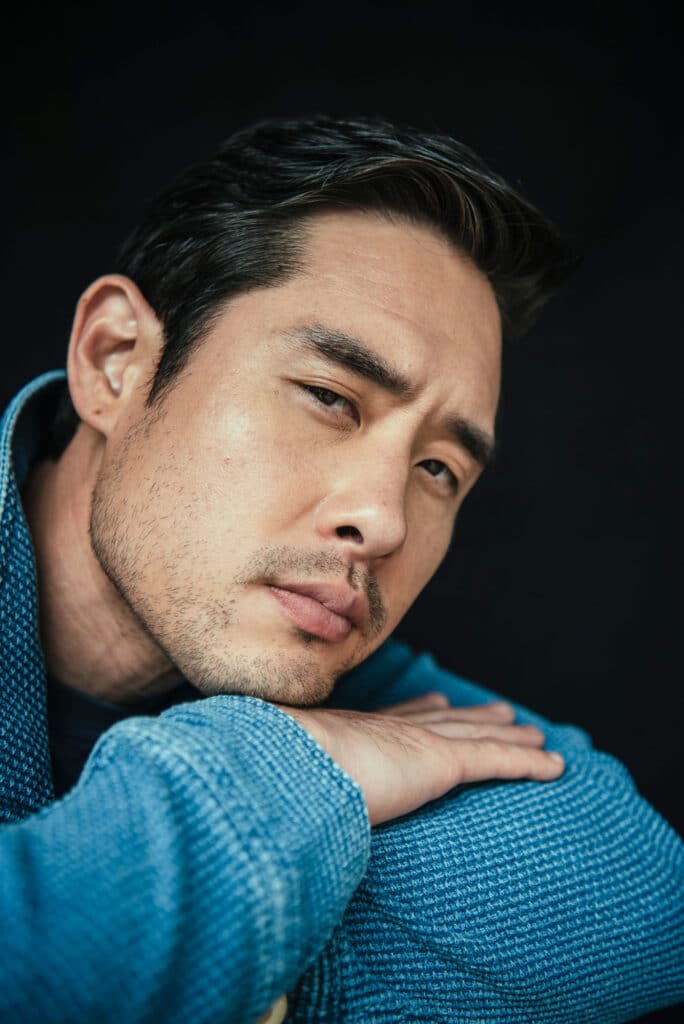
So without many role models on TV, what inspired you to want to become an actor? I understand your mom was an actor too.
Yeah. I didn’t realize it was in the blood until I much later, the last three or four years. My mom has always put me in positions where I got to be in front of an audience — I was in the choir as a kid, and did martial arts, which is very performative. In high school, I did sports for a lot of the same reasons, so I could perform in front of people. And I was in the a cappella choir in high school, and even though I wasn’t a good student, I put everything into that choir.
I dropped out of high school, it was not for me. And then I had to put my life back together, because I realized I was a high school dropout and was working at Starbucks, which was fun, but I saw all my friends moving along, at universities, and I found myself getting left behind. So I enrolled myself at Glendale Community College, and decided to take a theater course, and it changed the trajectory of my whole life. I found the misfits and storytellers that I’d been looking for, and everyone was just as lost as I was, but we felt found in our art form. So I just fell in love with it, and decided to forego my major in kinesiology and switch to theater, and then I transferred to a four-year university that had a great theater program, Cal State Long Beach, and that’s where I really had my artistic awakening. Then after that, I just hit the pavement in LA and did every job an actor could possibly do. I did non-union commercials, student short films, I found jobs on Craigslist. I really didn’t skip any steps, and that’s actually one of the points that I take great pride in. I really worked my way up.
I think my mom was waiting for me to actually have a career of my own, and then she showed me some headshots and told me she had a three-picture deal with a studio in Korea. She came to America to basically flee from that contract! Maybe she had told me before when I was growing up, but I wasn’t really receptive to hearing it until more recently. But even when I was ten years old and in the choir, she would always have the one note that made my performance come to life, like pull your shoulders back, or keep your eyes open when you sing, or something like that. When we got into her past in more detail a few years ago, it all made sense. And the more I think about, the more I think my mom had a plan for me all along.
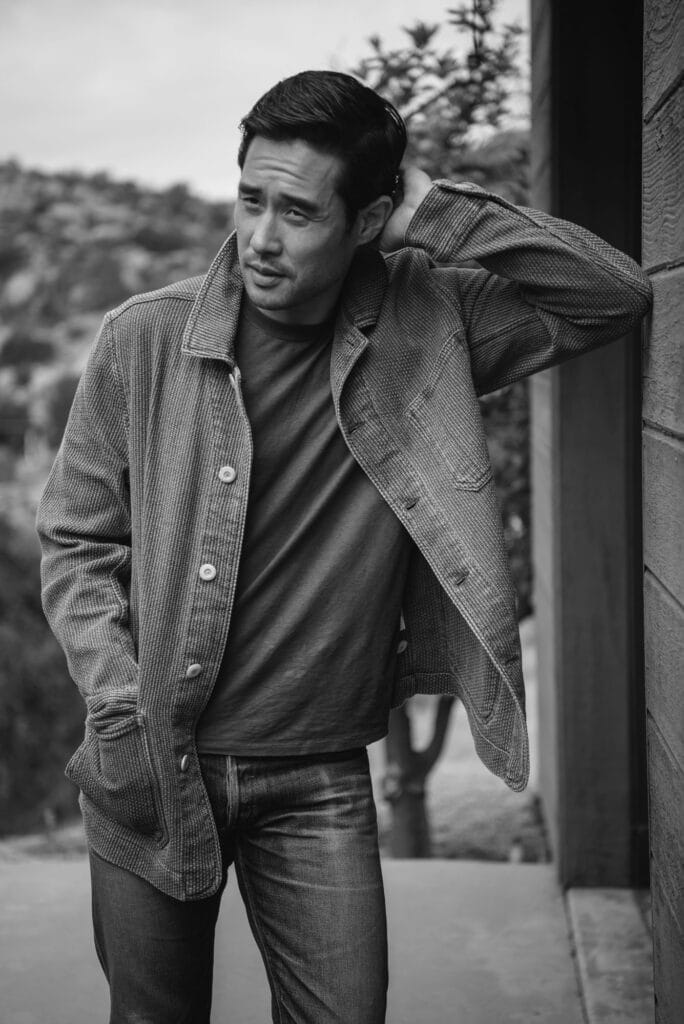
You mentioned you dropped out of high school, tell me about that. Why was it not for you?
The problem was, and still is, I am only drawn to things that I like. And as I didn’t like math, I wasn’t going to do math. I didn’t have anything I really cared for, except for video games and sports, and they didn’t really fill me up. I just needed a calling, a vocation, and when I got into theater I had a reason and felt needed, and that’s when the world started opening up to me. I started caring about history, and literature, and how things work, and even math — because there was a purpose to do so, to become more knowledgable and therefore become better at my job.
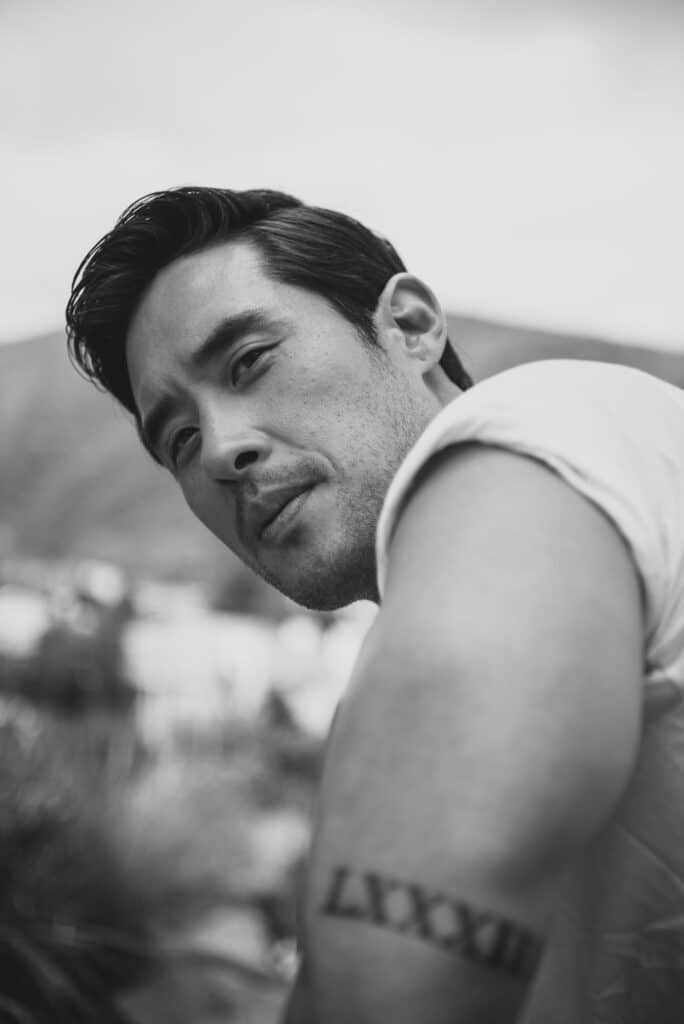
Was your mom a single mother, and can I ask what the situation was with your father?
He wasn’t around much. My dad came to America to study at college in Youngstown, Ohio. My mom and he met in Korea right before he decided to come, so it was fortuitous in the sense that my mom needed to get out, and he was already coming. He was the son of a very well-to-do family, and he was the oldest so there was a lot of responsibility for him to do well, and get an American education, to separate himself from all the other dudes in Korea. So he comes over here and goes to university, and my mom’s there with him in Ohio, and she’s like, ‘This place sucks.’ She’s a cosmopolitan lady, from a big city in Korea, so she decides to move to New York City while he’s studying. She gets a job working at a nail salon in Manhattan while she’s living in Flushing, Queens, and they go back and forth, and at some point she gets pregnant. So I was born in Queens, but my dad, I think, was just more interested in his studies and making own stuff work for him, so she’s basically raising me alone. So she moves to San Diego where she has a best friend, then quickly realized that San Diego is also not for her either, so she moves to Los Angeles, and that is where she put her roots down. I still remember, early on, my dad would visit once or twice a year, and he would write a lot, he was a great writer. So I still felt in touch with him, through his words and his periodical visits. But then I was around 12 or 13 when I heard from him last. My mom would tell me, ‘He’s just needs to be successful.’ And I got that, because when I did hear from him, the way he would translate his self-importance or self-worth to me was through what he was accomplishing. Like, ‘Did you know that your daddy is now making big deals with these Japanese businessman.’ And I’m like, ‘Alright, cool. But I just need you here!’
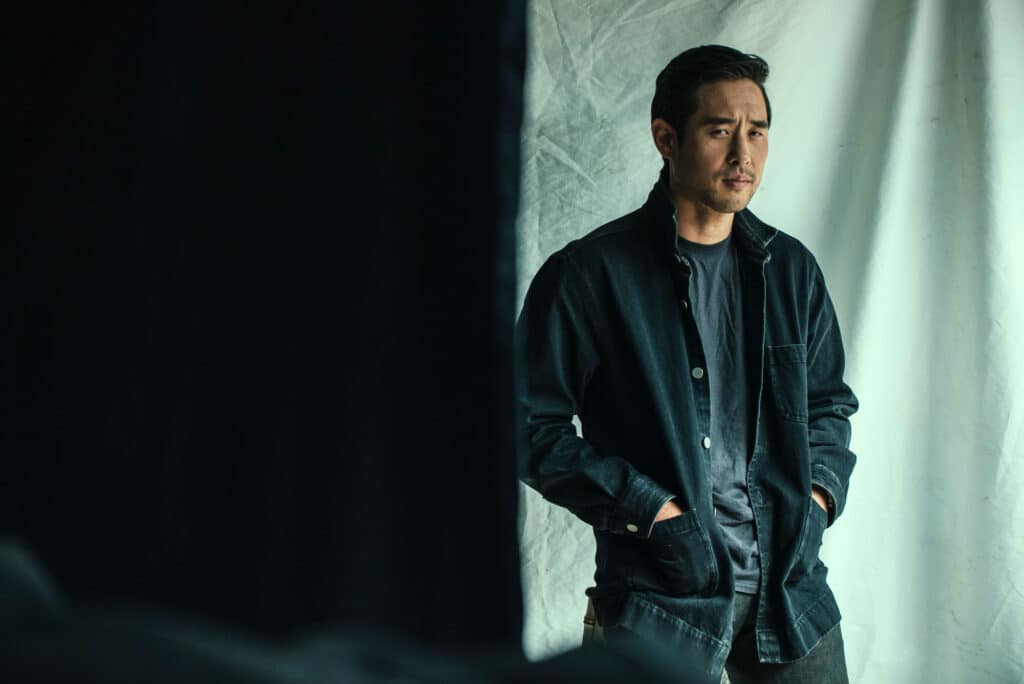
So what about now, as a dad yourself. How are you finding fatherhood, having not had a father present in your life showing you how it’s done?
I mean, I can only imagine that it’s affecting me deeply. I’m still in it, so it’s hard to think about it objectively, but I just know that I care deeply to be in their lives. It’s overcompensating almost, I don’t want to miss anything. But as I’ve got older, I’ve began to understand my father’s drive and ambition more, as I’ve developed that myself. It was also a different time, and he was a product of his environment too, as Korea was a shambles when he was growing up.
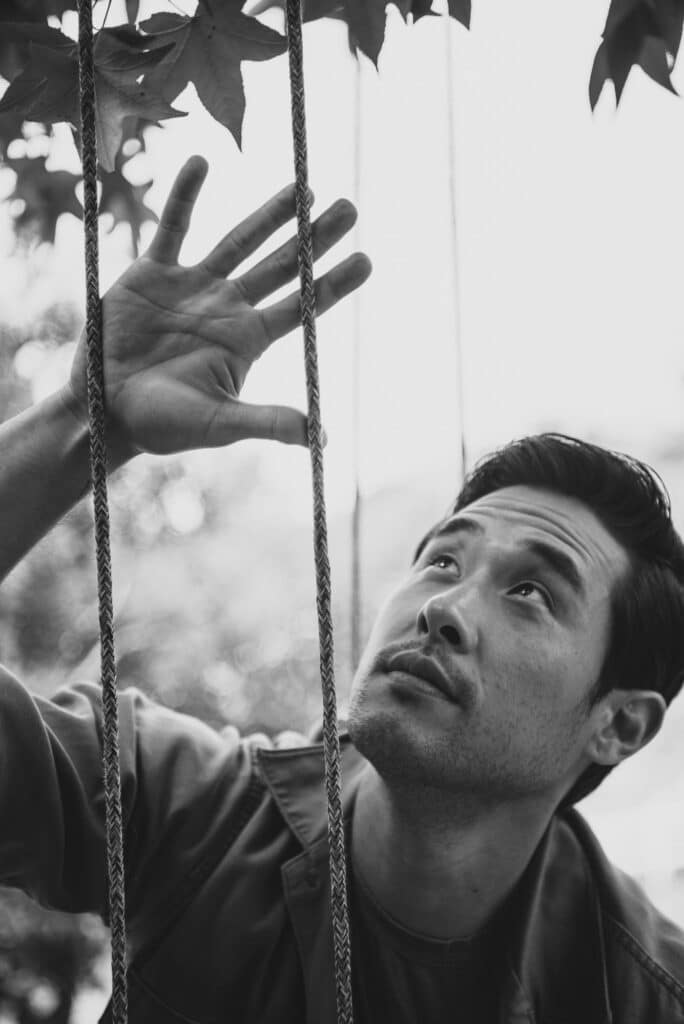
How has fatherhood changed you, and how you approach your work in particular?
When we first had our daughter, I couldn’t book a role. And it wasn’t because I was so tired, or because I wasn’t doing the work, but something had intrinsically changed in me. You could tell that I deeply cared about something now. When I was 30, I was still going for roles of post-college kids, but I could no longer book these carefree roles because I was changed. So I had to really take a step back, reevaluate myself, and do a deep dive. I put myself back in acting classes, I started reading books on fatherhood, and I tried to just find knowledge wherever I could. I started journaling again and I started to really find who I was. And about six or seven months went by where I was unemployed, and I felt like maybe this isn’t for me anymore. And then me and my manager decided to refocus on getting roles that were not some frivolous kid, but someone who cared more about things, and somebody who was perhaps a father. And that was a better fit. I don’t know that I would have had the maturity to take on this role in ‘Quantum Leap’ if it wasn’t for fatherhood. All of a sudden, the attention is taken off of you and something more important; now it’s about family, and the small things start to matter less. I think that was really important for me to lose that ego.
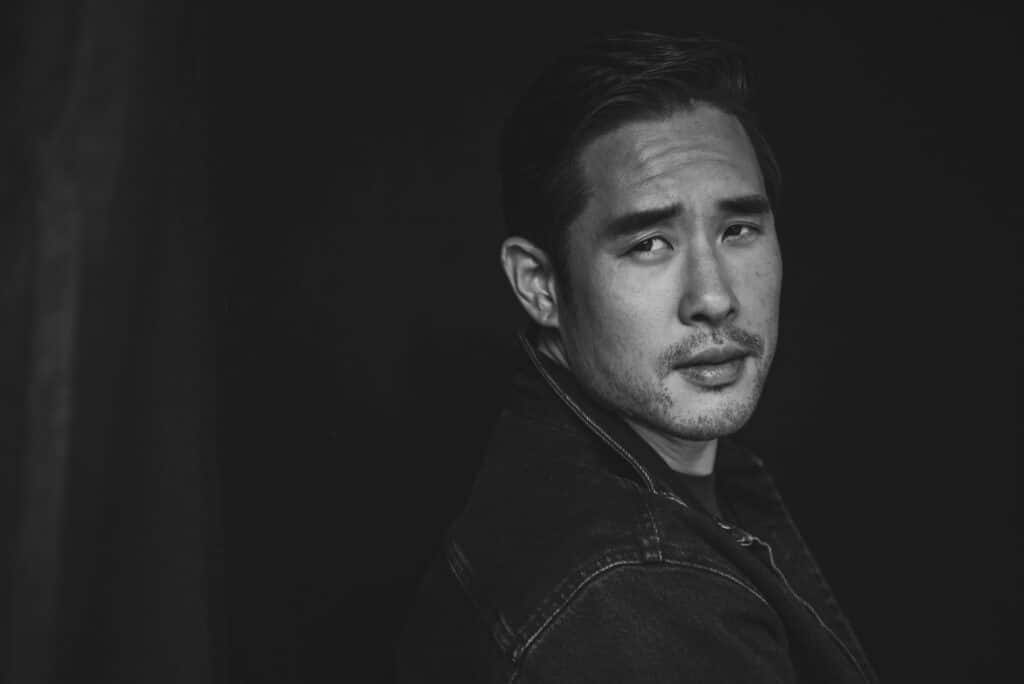
You mention journaling. We often ask people what practices they engage in to keep their mental health in the best shape. Are there other things you do for your own self-care?
I don’t journal as much as I used to, but during that period I was journaling quite frequently. I go to therapy. And a lot of my journey with mental health is really tied into exercise. When I go to the gym, when I go on runs, when I go on hikes, that is when I clear my mind. I have a very kinesthetic relationship with my body. So if my body’s loose, my mind is loose. And I have a lot of energy, too, so if I can expel that energy first thing in the morning, I’m generally more receptive to the day.
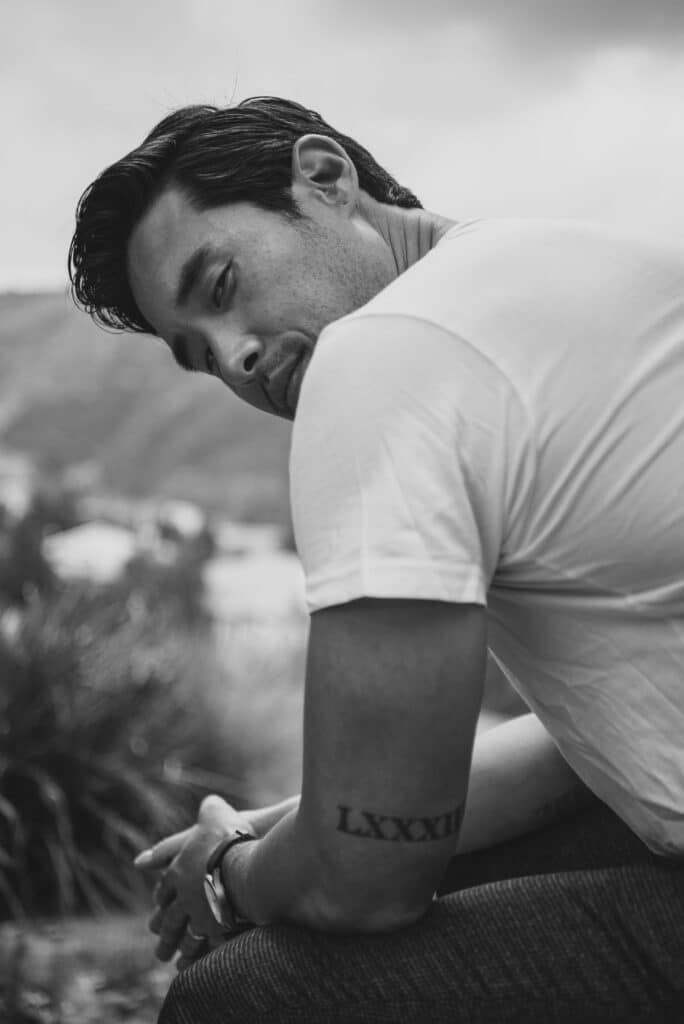
Tell me about working with Tom Cruise on ‘Top Gun: Maverick’. How was that experience?
Incredible. I mean, the guy is a monster. I haven’t met anybody that works harder than him. I spent six to nine months working with him, and I got to see what he does. ‘Top Gun’ was like being at this masterclass, taught by a master, and he was more than willing to share his knowledge and wisdom every day. Because it was also the nature of the movie, it was a new crop of pilots that were trying to come into their own. Any chance he got, he held court and gave us a lesson in movies and storytelling. I was there, taking copious notes, and couldn’t wait for the day I could put all that to use — and here I am.
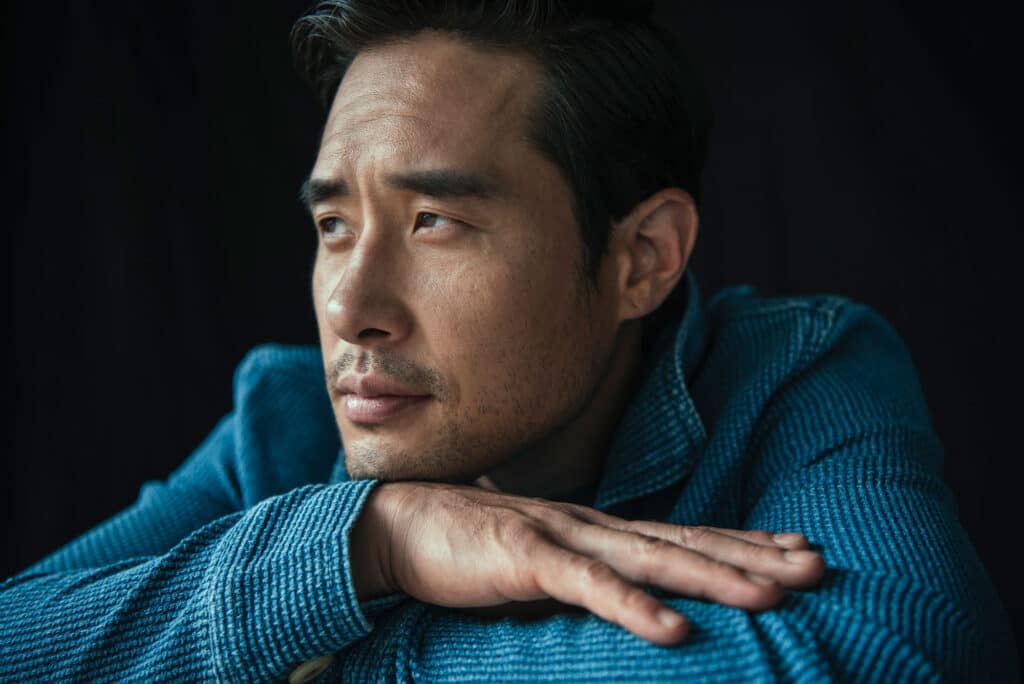
‘Quantum Leap’ is now on NBC
Grooming by Jeni Chua


